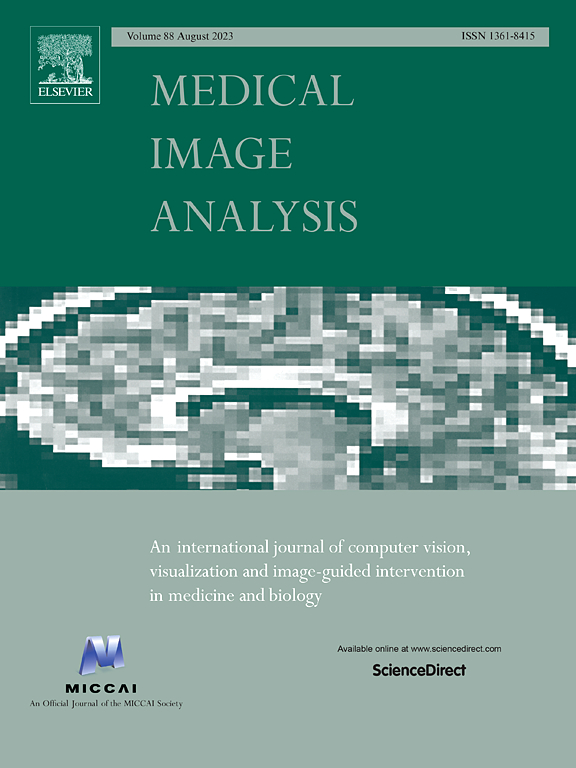利用知识蒸馏、图像合成和客户端模型自适应对医疗数据进行高效的一次性联邦学习
IF 11.8
1区 医学
Q1 COMPUTER SCIENCE, ARTIFICIAL INTELLIGENCE
引用次数: 0
摘要
在多轮通信不实际的情况下,一次性联邦学习(FL)已经成为一种很有前途的解决方案。虽然以前使用知识蒸馏(KD)与合成图像的方法在将客户的知识转移到一次性FL的全局模型方面显示出有希望的结果,但过度拟合和大量计算仍然存在。为了解决这些问题,我们提出了一种新的一次性FL框架,该框架使用mixup生成伪中间样本,其中包含具有不同类型结构噪声的合成图像。这种方法(i)增强了训练样本的多样性,防止了过拟合,为有效训练提供了信息丰富的视觉线索;(ii)允许合成图像的重复使用,减少了计算资源,提高了整体训练效率。为了减轻噪声带来的域差异,我们设计了适应噪声的客户端模型,通过更新噪声的批量归一化统计来增强KD。有了这些,训练过程包括通过KD迭代更新全局模型,使用伪生成的图像使用原始和噪声适应的客户端模型。对5个小型和3个常规大小的医学图像分类数据集的广泛评估表明,我们的方法优于以前的方法。本文章由计算机程序翻译,如有差异,请以英文原文为准。
Efficient one-shot federated learning on medical data using knowledge distillation with image synthesis and client model adaptation
One-shot federated learning (FL) has emerged as a promising solution in scenarios where multiple communication rounds are not practical. Though previous methods using knowledge distillation (KD) with synthetic images have shown promising results in transferring clients’ knowledge to the global model on one-shot FL, overfitting and extensive computations still persist. To tackle these issues, we propose a novel one-shot FL framework that generates pseudo intermediate samples using mixup, which incorporates synthesized images with diverse types of structure noise. This approach (i) enhances the diversity of training samples, preventing overfitting and providing informative visual clues for effective training and (ii) allows for the reuse of synthesized images, reducing computational resources and improving overall training efficiency. To mitigate domain disparity introduced by noise, we design noise-adapted client models by updating batch normalization statistics on noise to enhance KD. With these in place, the training process involves iteratively updating the global model through KD with both the original and noise-adapted client models using pseudo-generated images. Extensive evaluations on five small-sized and three regular-sized medical image classification datasets demonstrate the superiority of our approach over previous methods.
求助全文
通过发布文献求助,成功后即可免费获取论文全文。
去求助
来源期刊

Medical image analysis
工程技术-工程:生物医学
CiteScore
22.10
自引率
6.40%
发文量
309
审稿时长
6.6 months
期刊介绍:
Medical Image Analysis serves as a platform for sharing new research findings in the realm of medical and biological image analysis, with a focus on applications of computer vision, virtual reality, and robotics to biomedical imaging challenges. The journal prioritizes the publication of high-quality, original papers contributing to the fundamental science of processing, analyzing, and utilizing medical and biological images. It welcomes approaches utilizing biomedical image datasets across all spatial scales, from molecular/cellular imaging to tissue/organ imaging.
 求助内容:
求助内容: 应助结果提醒方式:
应助结果提醒方式:


